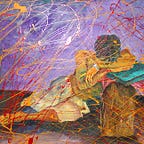I have heard from some that they do not consider Bulimia as an addiction, and so, although they might not agree with this post, I am here to write about my perspective and the perspectives of those that relate.
This might be triggering, but this is a real mind that thought the words through, one that retains and repressed memories of trauma and abuse. This is real, this might be triggering, but it is no way meant to force a point of view or give a non-argument-able notion. Rather, contradicting opinions are welcome, as they are just opinions of other real humans.
— — — — — — — — — — — — — — — — — — — — — — — — — — — — — — —
I have constantly heard the phrase “eating disorders are not a choice, just like cancer is not a choice.” At first it kept off a great burden that I held, the burden of guilt and frustration with myself, as people around said that my eating issues are none other than a “phase” and “I should just snap out of it”.
Later, though, as I worked on removing myself from the “victim mentality” that I found myself wallowing in, I had an epiphany: my bulimia is not a choice, but it also is not an illness. Cool, I discovered something new, but that left me with the question: What is bulimia’s role in my life?
You see, eating disorders come as a coping mechanism to some of us, we do not choose what eating disorder settles in as the coping mechanism, that is why I cannot choose anorexia over bulimia no matter how hard I try.
I began researching the biology of eating disorders, I found very little about bulimia, but little does not mean nothing. Its relation with our neurology and how some brain areas react similar to how they do to drugs. Later I found out that to me, bulimia was a medicine, just like chemotherapy is that for cancer.
It is not a cure for my inner problems, nor is it without side effects. Bulimia calms the inner chaos, then leaves us with eroded teeth, digestive issues, other mental issues, broken relationship, and (the best one yet!-sarcasm-) money troubles. Yet we cling to it, like a lifeguard.
Why?
In my experience, it was like the medicine that I had no choice but to choose. I could not express myself, go out for walks, feel any negative emotions, feel any extreme positive emotions, and I had so many responsibilities at a young age. No other medicine was in sight as an 12 year old.
It took a long time to realise that. I never related to bulimia being the illness, why would an illness provide me relief and momentary happiness? No, it was the medicine that I saw none other than.
Some people act out, take drugs, develop anorexia, develop BED, try on different diets, and some actually have the availability of healthy coping mechanisms. Some people have caring and non-abusive parents that can afford therapy. Some people develop an eating disorder for other reasons, but that is not my focus in this post.
I am now 4 years bulimic, I am learning to become a human, one with emotions that do not over-ride life, one with aspirations, religion, and knowledge. I have started building the foundation that I am to create my new life on two years ago, and finally I am starting to read books, listen to books, and actually implement what they say. No, this is not a smooth, easy, short, or convenient process. People will try to tell you what to do, and my advice would be: If it feels like the wrong path, IT IS THE WRONG PATH FOR YOU.
For years my family has been telling me what is wrong with me and how to deal with it. I fell into a deeper depression with every advice I followed. They did not give bad or wrong advice. They gave the right advice… for them. We have to accept that we are human and we are individuals.
We are human in the sense that we will make mistakes and it is our choice to learn from them and redirect ourselves. There is no right or wrong path, just two different paths, each having different losses and gains. Each having a different set of experiences and lessons, and whichever one we choose, it would have been the best one for us at the moment that we chose it.
It is okay to think that you did not make the “right” choice after you have gone through the experiences of that choice, that just means you have actually learned something and changed. But it is important not to regret that choice because without it, you would not have learned the lesson that you did.
We are individuals in the sense that we are us and no one else. Many courses of action exist that are right, all pieces of advice are right, but which one is the one that fits with us? Which one is the one you feel will build you up, will teach you more and progress you through life? It does not have to be comfortable or common, but it has to be the one for you. This is why we all have brains rather than just a few. We all have the responsibility to be ourselves rather than anyone else.
Books that changed my mindset:
A Man’s Search for Meaning by Viktor E. Frankl
Feel the Fear and Do it Anyway by Susan Jefers
